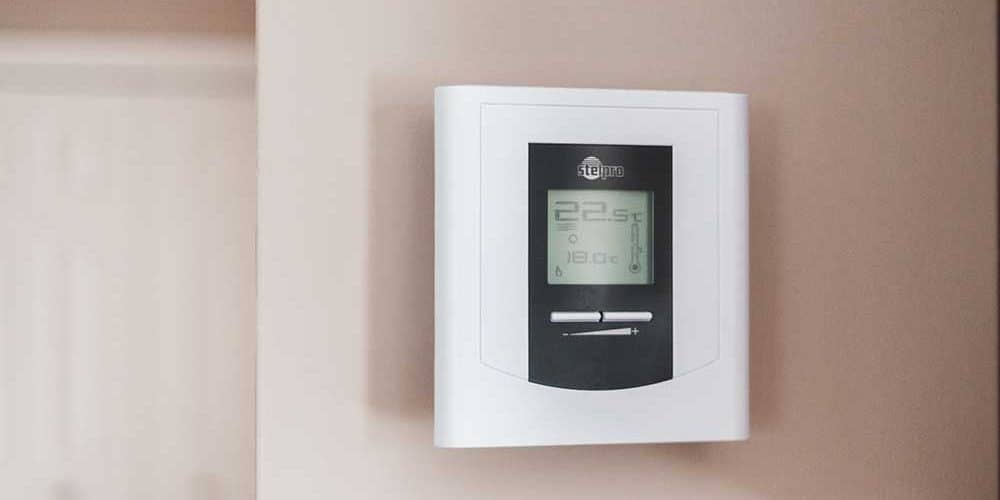Maintaining perfect comfort at home starts with an efficient heating system. In most UK homes, the boiler is the heart of the property, providing warmth and hot water all year round. Its efficiency directly impacts your comfort, household bills, and carbon footprint. Whether you’re considering an upgrade to a modern system or simply want to optimise your existing setup, understanding how your water pressure systems work is essential for achieving reliable performance and keeping running costs under control.
At Maintracts Services LTD, we combine technical expertise with practical solutions to help homeowners get the very best from their heating. From detailed performance checks to full boiler replacements, we handle it all. For expert advice or a quick quote, call us on 020 8682 2244 or email info@maintracts.co.uk today!
Upgrade your comfort with expert boiler services—where premium heating knowledge meets practical solutions. Save on bills while increasing your home’s efficiency.
Why Does Boiler Efficiency Matter For UK Homeowners?
The answer is simple: an energy-efficient boiler improves your home comfort while reducing your heating bills and lowering carbon emissions. More efficient heating means your boiler uses less fuel to keep you warm, saving you money over time. It also supports the UK’s goals to reduce greenhouse gas emissions and build more sustainable homes.
Modern boilers, especially the condensing boiler, are designed to capture and reuse heat that older models lose through exhaust gases. Since 2025, all new combi boilers and system boilers installed in the UK must meet a minimum energy efficiency rating of 92% under the Boiler Plus regulations. This means these boilers are engineered for superior performance, often exceeding 90% efficiency. The combi boiler efficiency makes them especially popular in smaller properties where space and quick hot water supply matter.
In addition to improved boiler technology, UK homeowners may qualify for financial support through the Boiler Upgrade Scheme (BUS). This government grant helps offset installation costs for low-carbon heating solutions and more efficient boilers, providing up to £7,500 in savings. Understanding your options and potential costs ahead of installation is essential — our detailed guide on boiler installation cost in the UK can help you plan your upgrade wisely.
How Boilers Achieve Maximum Efficiency
- Condensing boiler: Captures heat from exhaust gases, pushing efficiency close to 98%.
- Energy Performance Certificate (EPC): Evaluates your home’s energy performance and helps guide improvements.
- Water flow regulator: A pressure reducing valve controls flow and protects system components from unnecessary strain.
- System sludge cleaning: Removes rust, dirt, and other waste deposits that build inside the system, restricting water flow.
- Hydronic balancing: Distributes hot water evenly to all radiators, avoiding cold spots and wasted energy.
Scheduling an annual boiler performance check ensures ongoing efficiency and safety. See our complete boiler maintenance checklist.
Maintaining Your Heating Controls
Even a highly efficient boiler can waste energy if your controls aren’t set correctly. Modern boiler thermostats and energy-efficient heating controls can:
- Maintain ideal temperatures for each room.
- Use boiler scheduling to heat your home only when needed.
- Work with smart thermostats that can be managed remotely.
Replacing older manual thermostats with digital or smart versions alone can cut annual bills by up to 10%.
To learn more about installation options, read our guide to installing a new boiler.

Best Practices For Boiler Scheduling
Effective boiler scheduling can significantly reduce your energy use and extend the life of your system. Start by installing programmable room thermostats so you can tailor heating times and temperatures for different rooms. Lowering the thermostat at night or when the house is unoccupied cuts unnecessary energy consumption without affecting comfort.
It’s also wise to include short breaks in your heating schedule, allowing the system to rest and reducing wear on components. Regularly checking your flow and return temperature ensures your boiler operates at optimal efficiency, helping to maintain consistent warmth while avoiding waste. Combining these habits with smart thermostat controls can further improve efficiency and give you greater flexibility in managing your home’s heating.
Role Of Insulation In Heating System Efficiency
Insulation plays a vital role in preventing heat loss throughout your heating system. Without sufficient insulation, warm water loses temperature as it travels to your radiators, forcing your boiler to work harder and increasing running costs. Improvements such as adding a boiler insulation jacket to your hot water cylinder or insulating exposed pipework can reduce heat loss by up to 15% annually, enhancing overall efficiency and comfort.
Key insulation improvements include:
- Install a high-quality boiler insulation jacket on your hot water cylinder to minimise heat loss.
- Insulate all visible pipework, especially in cold areas such as lofts, cellars, and unheated spaces.
- Upgrade home insulation with cavity wall, solid wall, or loft insulation to retain more heat.
- Boost your Energy Performance Certificate (EPC) rating by improving insulation—often essential for schemes like the Boiler Upgrade Scheme (BUS).
By investing in these practical insulation measures, you reduce energy waste, lower your carbon footprint, and help your boiler perform at its best.
Tips For Lowering Boiler Running Costs And Carbon Emissions
Boilers account for a significant share of household energy use, so adopting efficient habits can make a real difference to your bills and carbon footprint. To keep your system performing at its best:
- Book annual boiler servicing to spot issues early and maintain peak efficiency.
- Bleed radiators regularly to remove trapped air, ensuring even heat distribution.
- Remove system sludge to improve hot water flow and prevent component wear.
- Upgrade to a condensing boiler if yours is outdated for greater fuel efficiency.
- Maintain correct pressure with a well-set pressure reducing valve for safe operation.
- Use programmable heating schedules to heat only when needed and avoid waste.
These simple measures can significantly cut running costs while supporting a greener, more sustainable home.
How The BUS And Other Incentives Help
The Boiler Upgrade Scheme (BUS) is a key part of the UK’s net-zero strategy, providing upfront grants to support low-carbon heating system installations. Homeowners can receive up to £7,500 towards installing an air or ground source heat pump. Additionally, there is a £5,000 grant available for biomass boilers, but only in rural locations without gas connections. To qualify, properties must have a valid Energy Performance Certificate (EPC) and, in most cases, adequate insulation. These incentives make sustainable heating accessible and affordable to help reduce carbon emissions.
Why An Efficient Boiler Heating System Matters For UK Homeowners
A well-maintained, energy-efficient boiler is at the heart of a warm and comfortable home. It not only helps reduce running costs but also increases your property’s value and plays a vital role in cutting carbon emissions. By choosing the right upgrades and ensuring regular maintenance, you can enjoy reliable performance while making your home more environmentally friendly.
If you’re ready to enhance your heating efficiency—whether through a new installation or optimising your existing system—our expert team can help. We’ll provide honest advice, high-quality installation, and ongoing support to suit your needs. Call us today on 020 8682 2244 or email info@maintracts.co.uk to start your journey towards a cost-effective, eco-friendly heating solution that keeps your home comfortable all year round.
Frequently Asked Questions
What is a condensing boiler, and how does it save energy?
A condensing boiler recycles heat from exhaust gases to preheat water, reducing energy waste and making it up to 98% efficient compared to older boilers.
How low should the boiler flow temperature be for efficiency?
For best efficiency, aim for boiler flow temperature between 55–60°C, provided radiators can still warm your rooms comfortably at these lower settings.
Can I control boiler operation with smart thermostats?
Yes, smart thermostats let you control heating remotely, set schedules, and zone temperatures, helping reduce unnecessary energy use and improve comfort.
How often should I service my boiler?
Annual servicing is essential to maintain efficiency, ensure safety, and keep your boiler warranty valid.
Does insulating pipes help reduce heating bills?
Yes, insulating pipes reduces heat loss between your boiler and radiators, lowering energy use and making your heating system work more efficiently.
What is hydronic balancing, and why is it important?
Hydronic balancing evenly distributes hot water to radiators, preventing cold spots and improving your boiler’s overall efficiency.
Can scheduling reduce energy use cost-effectively?
Absolutely, scheduling heating to operate only when needed cuts waste, lowers bills, and extends your boiler’s lifespan.

